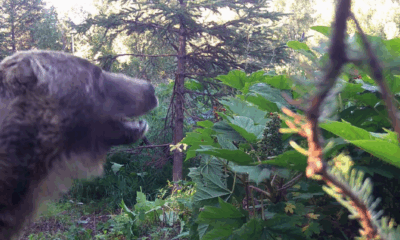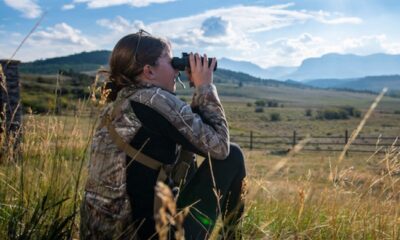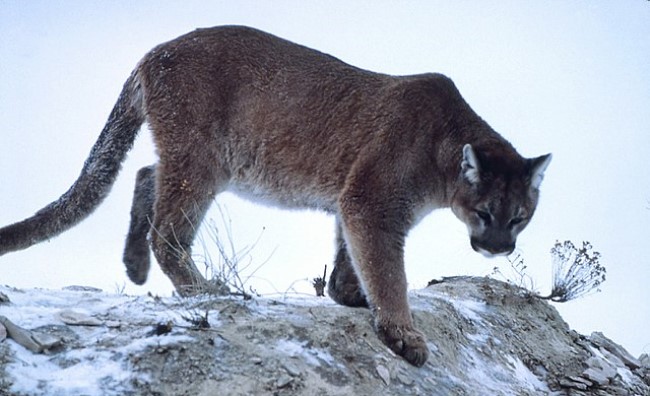Hunting
Dorsey: Colorado Ain’t Vegas; What Happens There Will Spread
Editor’s note: Today’s column comes to us courtesy of Chris Dorsey, biologist, award-winning television and film producer, regular contributor to Forbes, past editor of Ducks Unlimited and Sports Afield magazines, and the author of 12 books on hunting and natural history subjects.
American sportsmen have justifiably celebrated the success of the so-called North American model of hunter-funded conservation, but the approach has a tragic flaw that now threatens to undo a generation of work.
Hunter-conservationists have been so focused on saving, enhancing and restoring habitat that we neglected to tell the 95 percent of Americans who do not hunt what we were doing for the fish, wildlife, and landscapes of the country. In the meantime, a coalition of animal rights groups have exploited our blind spot to make hunting culturally toxic to an ever-growing number of Americans. That is, we were distracted by meaningful work while anti-hunting groups reinforced their stranglehold on the court of public opinion.
As sportsmen were busy renewing forests, creating the national wildlife refuge system, managing prairies and the like, anti-hunting organizations ran largely unopposed in the cultural zeitgeist as they co-opted corporate media, intimidated big brands into submission with mass social media campaigns, harnessed big tech, and cultivated celebrity ambassadors for their cause that include A-listers like Joaquin Phoenix, Leonardo DiCaprio, Paul McCartney, Ricky Gervais, Charlize Theron, Alec Baldwin, Pink, Olivia Munn, to name but a few.
The top ten anti-hunting organizations alone (and there are hundreds more) boast a combined 31 million members, have nearly 7,000 employees, and generate $1.1 billion annually. Humane Society of the United States and PETA alone account for 19 million members—roughly 4 million more members than America has hunters.
While the hunting community was planting seeds of a better wildlife future, anti-hunting groups were busy sowing doubt about hunters in the minds of the majority of Americans who do not hunt. The most recent price of our negligence is the rise of the cancer known as ballot box biology—the ability of animal welfare groups to buy signatures and place anti-hunting propositions on state ballots. They know that fewer than five percent of Americans hunt, so much of the country can be swayed with emotional campaigns that, to date, have trumped the narrative that science-based wildlife management is the only logical path forward. In the process, they have marginalized the role of state fish and wildlife agencies—attacking their science and credibility in the eyes of non-hunters.
While we are often shown outdoor industry funded polls that suggest the majority of Americans support hunting as a wildlife management tool, the results of those polls don’t seem to hold up in the face of ballot measures with emotionally charged media and educational campaigns. Anti-hunting groups have defined ‘trophy hunting’ as abhorrent to the mainstream (never mind that their label has no bearing on reality) and are looking to morph the language to make it synonymous with all hunting. They have successfully influenced the public as hunting groups have largely left those assertions unchallenged. Hunters are sometimes so insulated from mainstream viewpoints that they are often dismayed that most don’t know all the good they have done.
Some 26 states have the referendum process—often referred to as ‘direct democracy’—where citizens, not elected officials, make key decisions. That is, the apparatus the sporting community has built to lobby legislatures and the Congress is mostly irrelevant against propositions decided by the will of uninformed voters or a public under the media influence of special interests. As noble as direct democracy might sound, the process has become little more than fertile territory for anti-hunting groups to wield their influence in the court of public opinion.
Colorado represents the frontline of this new war on wildlife, a proving ground where anti-hunting groups are perfecting the model they will most assuredly transport to a state near you. This November it’s an effort to ban mountain lion, bobcat and lynx hunting (never mind that lynx barely exist in Colorado and aren’t currently hunted or trapped). The strategy behind it is clear: If successful, the anti-hunting groups will eventually create an abundance of apex predators on the landscape through their ballot measures (wolf introductions, black bears—which cannot be hunted over bait or with hounds—and mountain lions). When that happens, the question will be why do we need hunters to control elk and deer populations?
It’s easy to dismiss Colorado as having been surrendered to the Californication of the West, an isolated island of irrationality, but ask yourself if hunters in your state are prepared for a vote on the efficacy of hunting when 95 percent or more of the population has no vested interest and limited understanding of its benefits? Would your hunting friends and family be prepared to push back against well-funded emotional campaigns that are not bound by truth, where our opponents have bought scientists to support their specious narratives?
As a hunting community, we’ve been flat-footed in our response and are late to the mainstream messaging wars—tragically late. We celebrate our conservation successes mostly with ourselves, convincing one another that we are the true champions of conservation—and indeed we are. Problem is, few in the mainstream know the species and habitats that have been resurrected because of the efforts and dollars of hunters, that we have cleaner air and water, and healthier soils because of the efforts of those same people.
We are now 60 days away from arguably the finest hunting state in the Lower 48 losing one more battle with anti-hunting groups, setting the stage for a bleak future across the country as their kind will be emboldened by such success and their efforts to transform state after state will accelerate with ever-more funding.
We have reached an inflection point now where the camo coalition of hunter-funded unlimited, society, and forever groups must pivot and embrace a broader mission to build enduring bridges to the mainstream. Self-imposed Pittman-Robertson taxes (our money) must be shifted to include managing hunting as a brand to the mainstream—something far bigger and bolder than the well-intentioned but limited R3 program (the industry’s effort to Recruit, Retain and Reactivate more hunters). Simply put, if we do not have hunting, who will care about habitat efforts anyway? No hunting means no conservation funding and, with that reality, is this how the celebrated North American conservation model dies?
Defeat, however, is not a foregone conclusion in Colorado as polling indicates a nearly even split in the electorate on the proposed mountain lion ban. The stirring that is presently sweeping Colorado is unlike anything I have seen in my quarter century of living here. From average Joe’s to billionaires, corporations to small businesses, from farmers to cattlemen, to sportsmen and their families there is an awakening happening in the state that might just be our community’s chance to finally flex its amazing story of conservation to the mainstream. It’s our opportunity to signal that we will bring the resources—financial and intellectual—necessary to win the day and start an offensive to take back the national narrative on hunting.
The question each of us must answer, however, is what are we willing to do to win—to preserve the lifestyle that, for many of us, defines our very existence?
— Chris Dorsey
EDITOR’S NOTE:
Want to help? These are some of the key groups in the arena who need your support to fight the mountain lion hunting ban:
Coloradan’s For Responsible Wildlife Management, www.savethehuntcolorado.com
Colorado Wildlife Deserve Better, www.wildlifedeservebetter.com
Rocky Mountain Elk Foundation, www.rmef.org
Safari Club International, www.safariclub.org
Wild Sheep Foundation, www.wildsheepfoundation.org
Congressional Sportsmen’s Foundation, www.congressionalsportsmen.org
-

 Hiking & Climbing1 week ago
Hiking & Climbing1 week agoWhen Bears Bring the Drama: A Tail—or Should I Say “Tale”?
-

 Adventure1 month ago
Adventure1 month agoREACTION: Trump’s Make America Beautiful Again Agenda
-

 Gear2 months ago
Gear2 months agoLet Freedom RING! Primary Arms’ Independence Day Category Sale Starts NOW
-

 Adventure2 months ago
Adventure2 months agoU.S. Bighorn Sheep Going Home to Canada
-

 Camping & Survival2 days ago
Camping & Survival2 days agoField Dressing 101: Knowing When It’s Their Turn
-

 Fishing4 weeks ago
Fishing4 weeks agoMy Wacky Bush Brings All the Bass to the Yard
-

 Adventure3 weeks ago
Adventure3 weeks agoNo Ivy Required: University of Montana’s New Center for Hunting and Conservation

